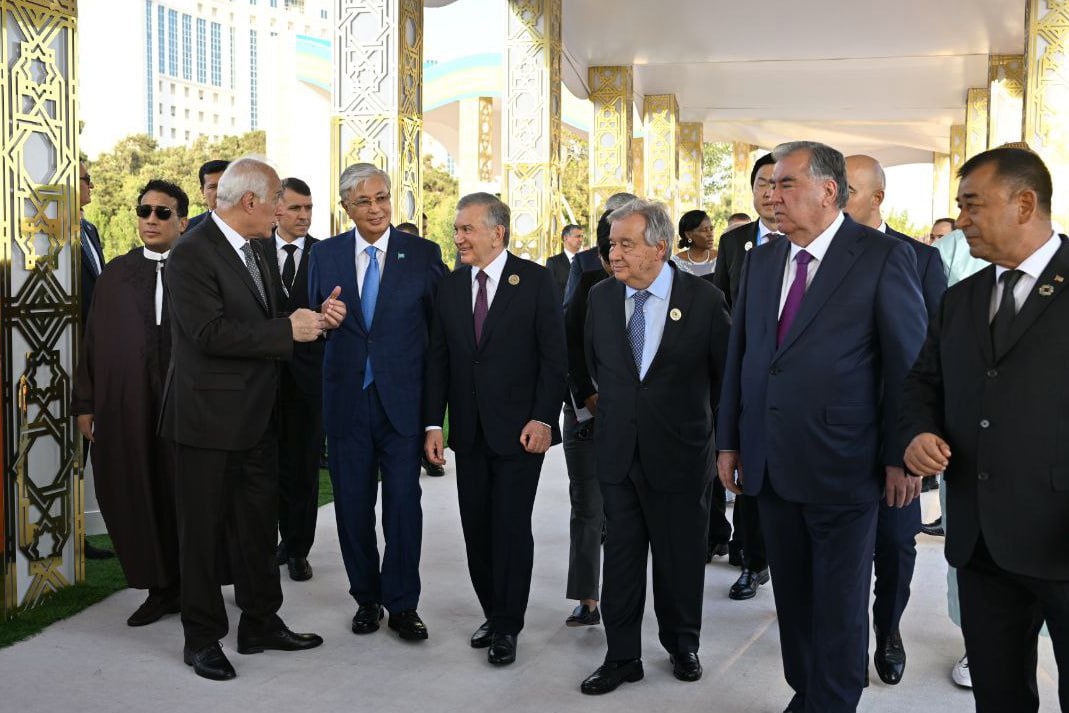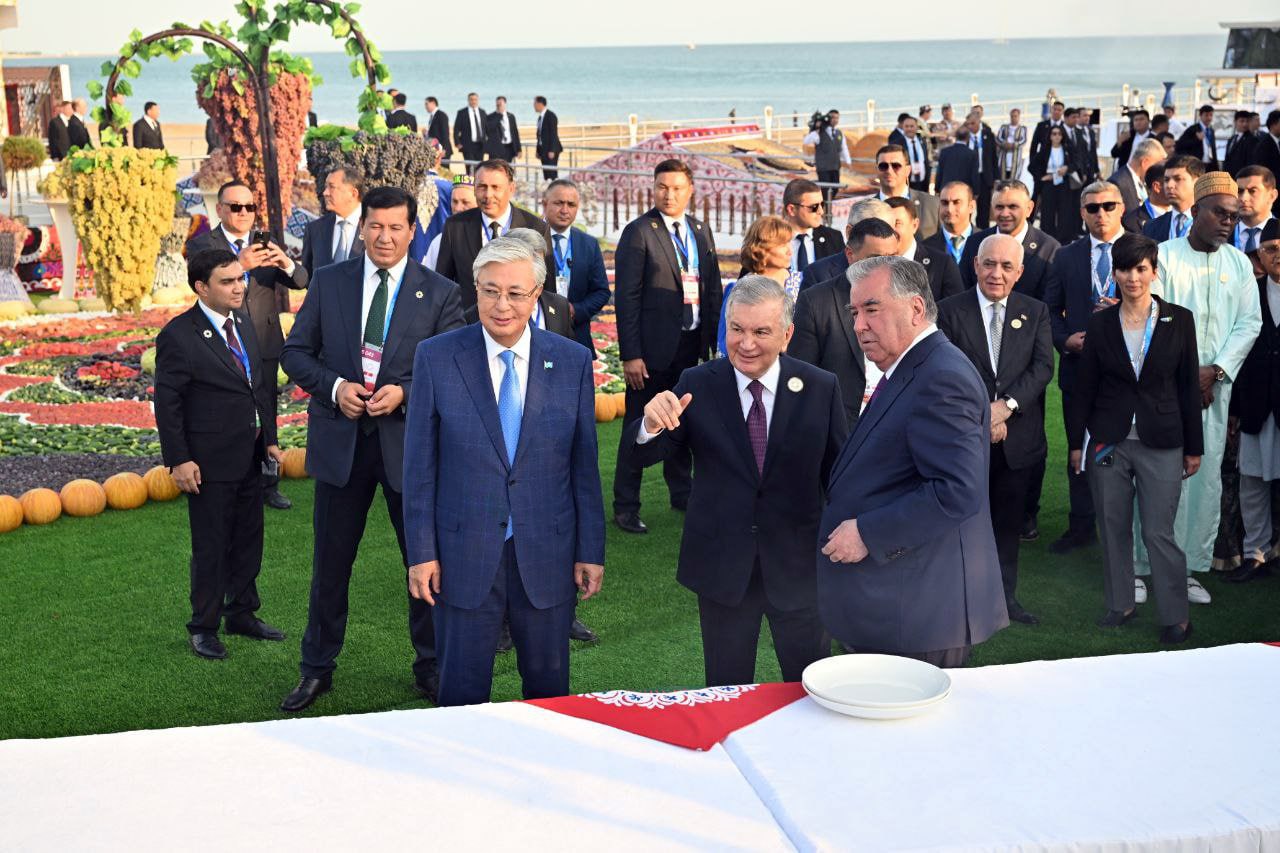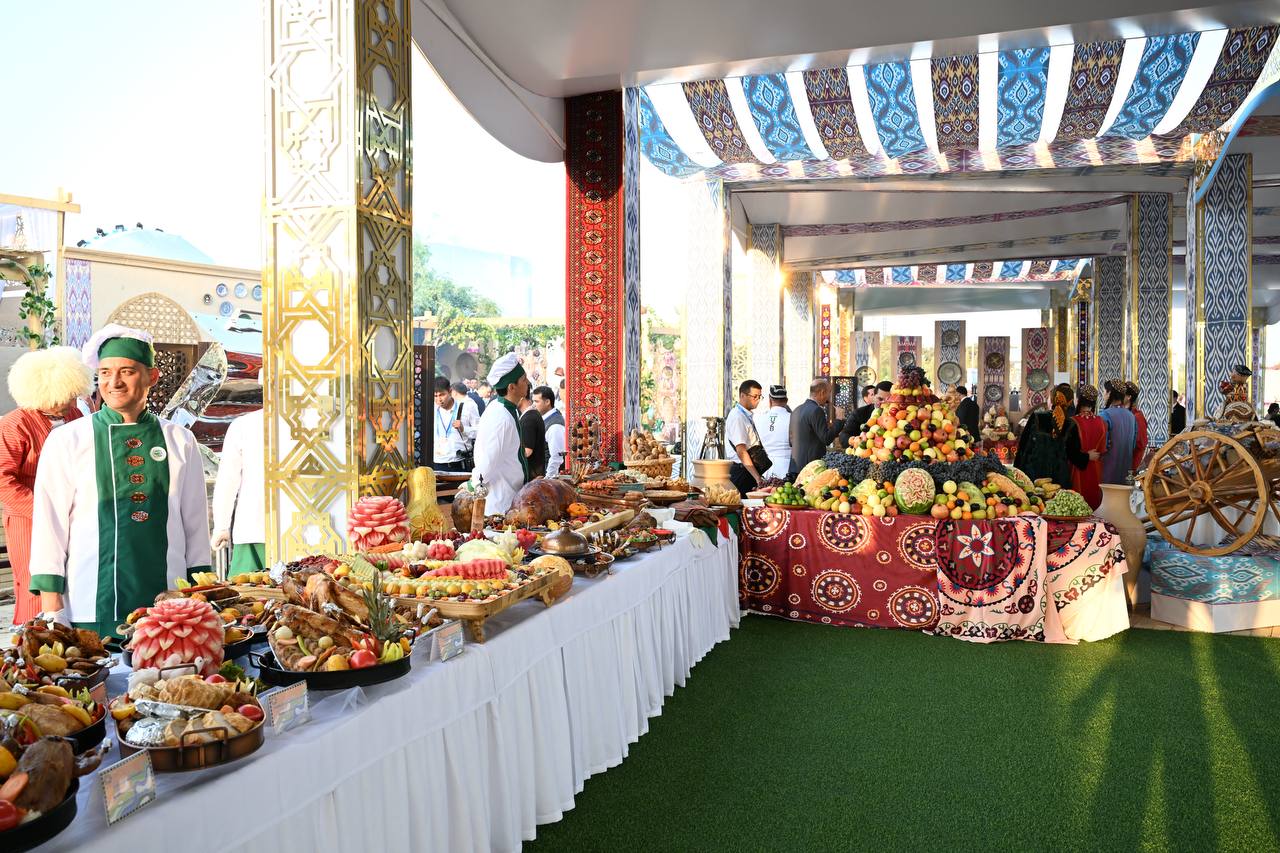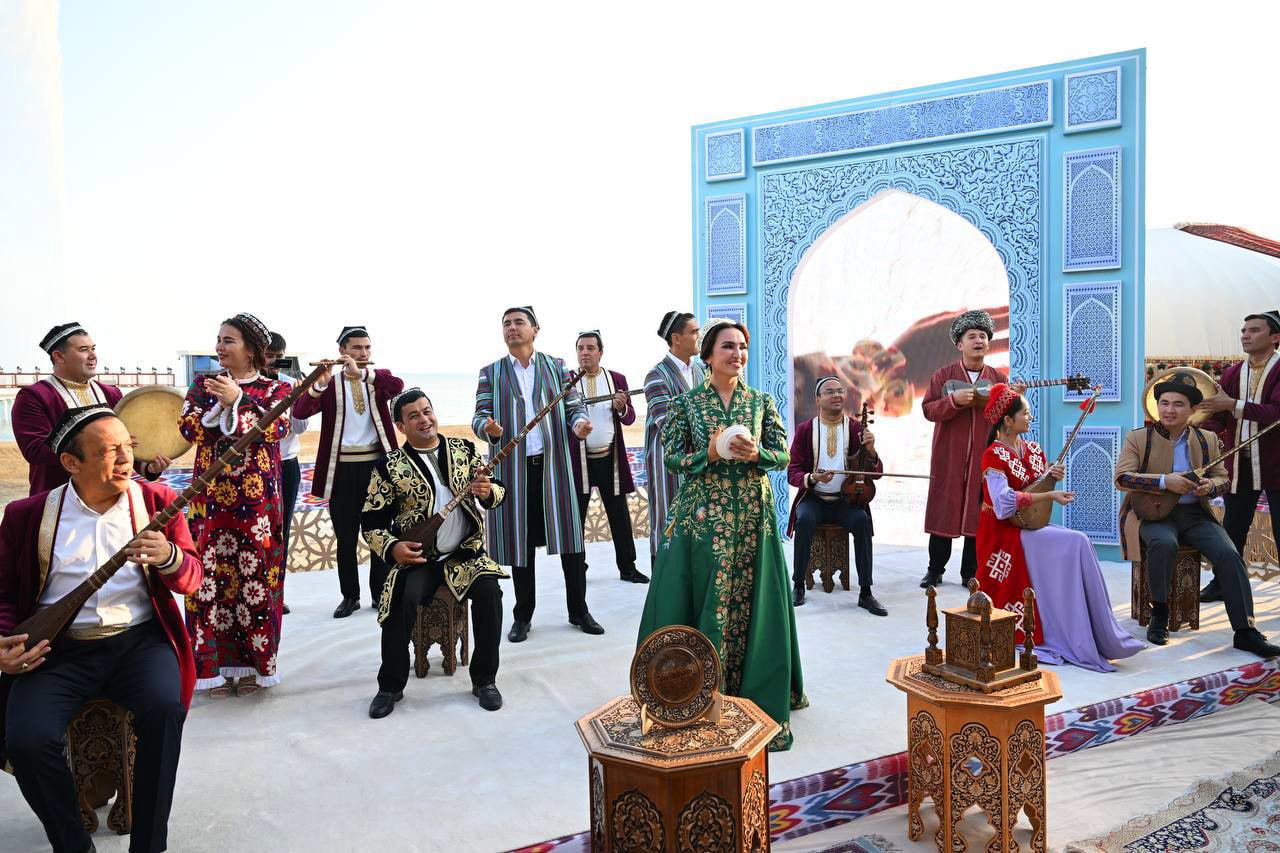The Voice of Avaza
07.08.2025
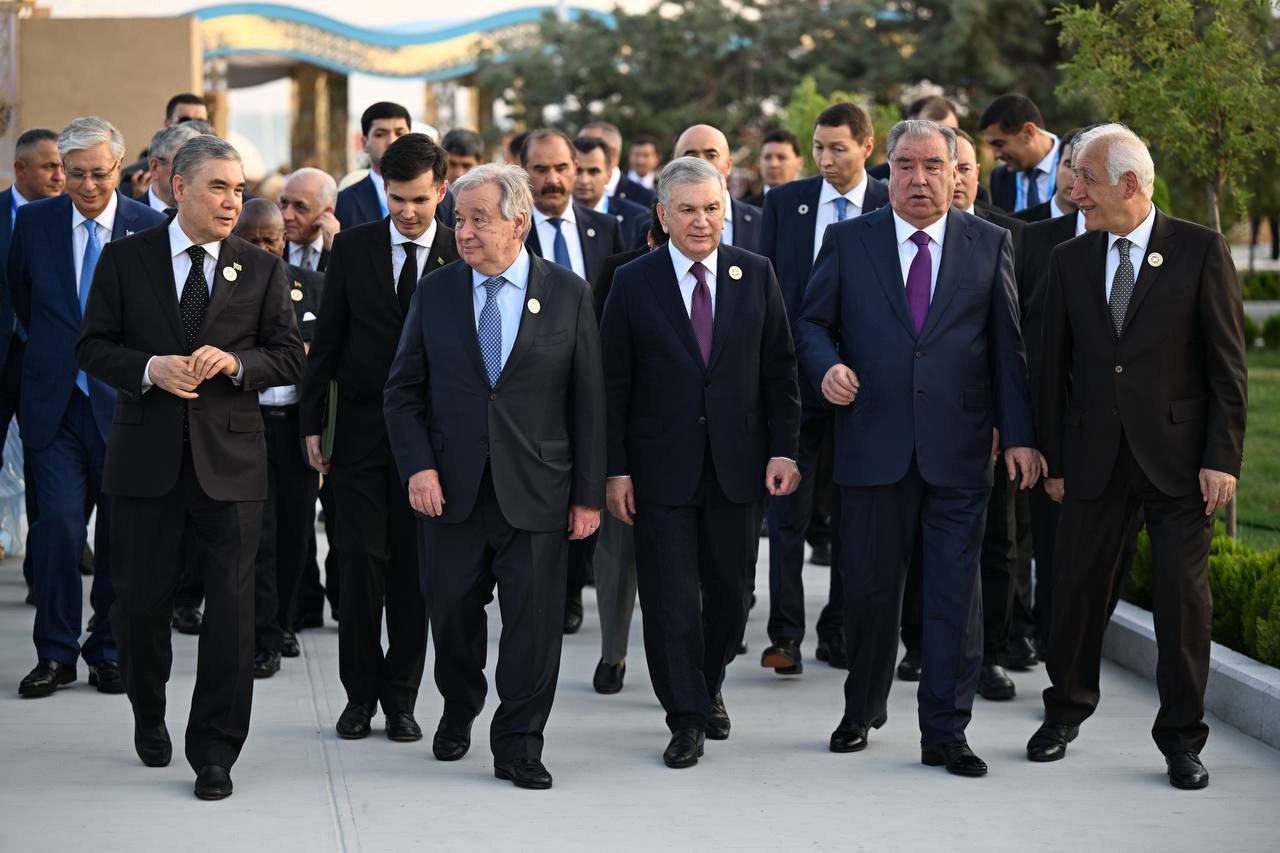
It is important to note that among the leaders of the Central Asian states, President Shavkat Miromonovich Mirziyoyev can rightfully be regarded as such a figure. From the very beginning of his presidency, he used the high rostrum of the United Nations to promote ideas of peace, friendship, and cooperation to the world, attracting the attention of many nations.
A recent example of this recognition was seen at an international forum held in Turkmenistan.
Within the framework of the United Nations’ Third Conference on Landlocked Developing Countries (LLDCs), President Shavkat Mirziyoyev was ceremoniously awarded Turkmenistan’s “Order for Contribution to the Development of Cooperation,” which is a high acknowledgment of our national leader’s efforts.
“I accept this award as a sign of special respect for Uzbekistan and its multi-ethnic people, as well as recognition of our joint efforts to strengthen friendship, good neighborliness, mutual trust, and partnership relations in Central Asia,” said our Head of State.
The President of Uzbekistan also noted that the Arkadag and the leaders of all Central Asian countries are making great contributions to advancing cooperation in the region. It was emphasized that the entire international community now recognizes our collective success in building a new model of regional partnership and identity. The President also put forward a number of important initiatives to address the shared threats and problems faced by landlocked countries.
The event, chaired by President Serdar Berdimuhamedov of Turkmenistan, was attended by UN Secretary-General António Guterres, President Kassym-Jomart Tokayev of Kazakhstan, President Emomali Rahmon of Tajikistan, as well as other heads of state and government, and leaders of international and regional organizations, making it a significant gathering in every respect.
“Today’s agenda unites us around a fundamental issue — the issue of justice. It is about ensuring that landlocked countries have the opportunity to participate in the global economy on equal terms,” said the Uzbek leader.
These efforts include modernizing infrastructure as a basis for sustainable development, strengthening connectivity to prevent transit problems, and ensuring the right to development — a key element of global equality.
The structural economic reforms being carried out, the liberalization of the trade system, and the radical improvement of the investment climate have produced significant results: competitiveness has increased, and innovative development has accelerated. The President noted the foundations on which these achievements rest.
“The new level of mutual trust and partnership in Central Asia is giving strong impetus to rapid change,” said the Head of State.
This year, construction began on the “China–Kyrgyzstan–Uzbekistan” railway with our partners, and freight volumes along the “Uzbekistan–Turkmenistan–Iran–Turkey” transport corridor have grown significantly.
To address the common threats and challenges of landlocked countries, the President of Uzbekistan proposed several concrete measures.
One was to accelerate the implementation of the “Uzbekistan–Afghanistan–Pakistan” railway project and connect it to the under-construction “China–Kyrgyzstan–Uzbekistan” rail line.
“This will create great opportunities for building a new trade and economic space and a sustainable transport infrastructure across our vast region,” the Uzbek leader said.
Another proposal was to establish an Innovation Hub in Uzbekistan to develop the agricultural sector. This would serve to introduce adaptive agricultural technologies, promote innovative projects in water conservation and food security, and foster knowledge and experience sharing.
The President also stressed the importance of actively involving leading experts and think tanks in developing proposals to overcome common threats, including holding international forums and roundtables.
It was also announced that Uzbekistan intends to join the activities of the International Analytical Center for Landlocked Countries. In conclusion, the Head of State reaffirmed that our country is ready for constructive and long-term partnerships aimed at building a fairer architecture of global development.
The adoption of the Avaza Political Declaration can be considered a bold step toward achieving our common goals.
Within the framework of this third conference, a trilateral meeting was also held between the President of Uzbekistan Shavkat Mirziyoyev, Turkmenistan’s national leader and Chairman of the People’s Council Gurbanguly Berdimuhamedov, and Prime Minister of Azerbaijan Ali Asadov, focusing on expanding mutually beneficial regional cooperation and promoting joint projects.
In conclusion, it can be noted that the UN Conference on Landlocked Developing Countries (LLDCs) is of great significance and has promising prospects, as it aims to address the challenges hindering the economic development of these nations. The importance and prospects of the conference are manifested in the following:
-
Drawing global attention to the unique problems of LLDCs, thereby helping to increase the necessary international assistance and cooperation for their development.
-
Serving as a political platform for LLDCs to promote their interests, discuss common problems, and find solutions.
-
Creating conditions for discussing and implementing measures aimed at expanding economic opportunities, such as developing transport infrastructure, facilitating trade, attracting investments, and other steps.
-
Strengthening cooperation among LLDCs and with developed countries and international organizations, enabling joint solutions to shared problems and progress toward sustainable development.
-
Providing a forum for sharing development experiences, successes, and challenges, offering valuable lessons and best practices for other countries.
As for the prospects, the conference will contribute to achieving the Sustainable Development Goals — eradicating poverty, ending hunger, ensuring quality education, achieving gender equality, developing transport infrastructure, and facilitating access to global markets.
The event will also help promote digital technologies in LLDCs, aiding in the modernization of their economies, improving service quality, and creating new opportunities for the population.
Overall, the third UN LLDC Conference held in the Avaza National Tourism Zone is of great importance for the sustainable development of these countries and opens broad prospects for their future.
In short, one could say that the “Voice of Avaza” rings as a call for cooperation and friendship, serving the interests of all participating states.
Rakhimboy Jumaniyozov,
Press Secretary of the “TIIAME” National Research University,
member of the Writers’ and Journalists’ Unions of Uzbekistan

